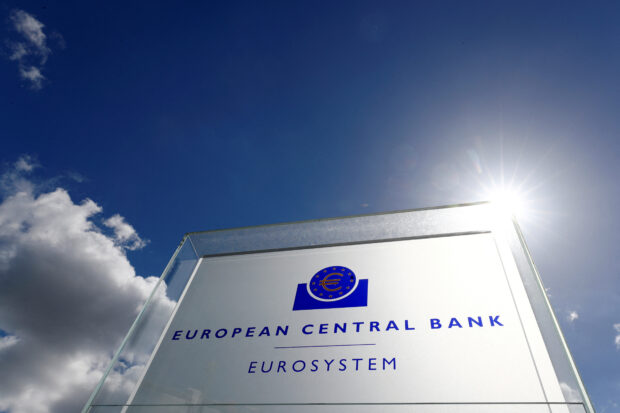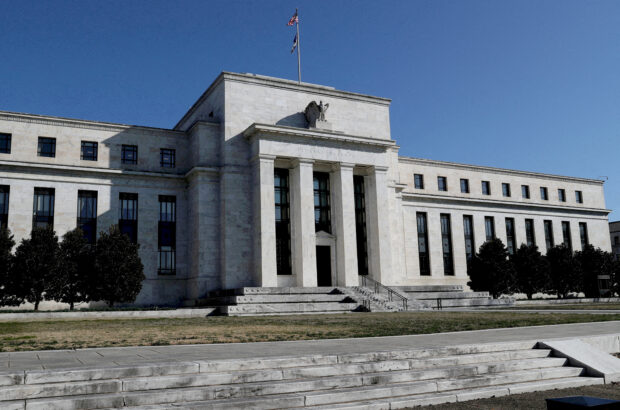Fed, ECB may slash bank reserves by 90% in new era of high rates

The logo of the European Central Bank (ECB) is pictured outside its headquarters in Frankfurt, Germany. REUTERS/Kai Pfaffenbach/File photo
FRANKFURT – The Federal Reserve and the European Central Bank may mop up as much as 90 percent of the money they pumped into banks over the last decade now that high inflation and interest rates make that extra liquidity unnecessary, a paper by a Fed economist showed on Thursday.
The world’s two largest central banks have been raising interest rates at a brisk pace to fight inflation and unwinding some of their massive bond purchases, which flooded banks with cash when price growth was sluggish and borrowing costs already at zero.
The Fed paper, which will be presented to top central bankers next week at the ECB’s annual get-together in Portugal, delves into the question of how much cash the Fed and the ECB should keep in the banking system to satisfy demand for reserves now that monetary stimulus is no longer needed.
Its author, a senior adviser to the Federal Reserve Board, estimates the Fed could reduce total reserves from their current $6 trillion to between $600 billion and $3.3 trillion depending on whether it would accept U.S. government bonds or less coveted assets in return.

The Federal Reserve building is pictured in Washington, U.S. REUTERS/Leah Millis/File photo
U.S. Treasuries and German government bonds command a premium on the market because of their liquidity and safety, meaning banks have less of an incentive to swap them for deposits at the central bank.
Article continues after this advertisementSimilarly, the ECB could shrink its own provision of liquidity from 4.1 trillion euros ($4.51 trillion) at present to as little as 521 billion euros, if it only accepts German government bonds, or 1.4 trillion euros against other assets.
Article continues after this advertisementNeither scenario is entirely plausible in the near term as both the Fed and the ECB have a mix of government bonds and other types of debt on their balance sheet.
The paper narrowly focuses on the supply and demand of reserves and the relative convenience of assets received by the central banks in return.
It does not consider other variables; for example the ECB is beginning to debate whether to change its current framework, in which reserves are ample and borrowing costs for banks pinned at the interest rate that the central bank pays on deposits.
The paper also doesn’t take into account the potential side effects of a large balance sheet, such as inflating the price of some financial assets or weakening the incentive for governments to run a sound fiscal policy.
“I view my estimates as a benchmark from which policymakers can adjust balance sheet size up or down depending on their view of the importance of other factors,” author Annette Vissing-Jorgensen said in her paper.
RELATED STORIES:
ECB hikes rates to 22-year high and says not done yet
Fed leaves rates unchanged, sees two small hikes by end of 2023